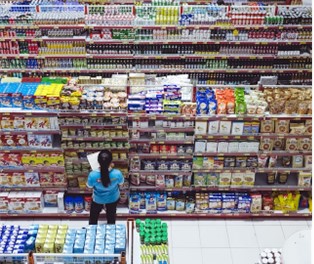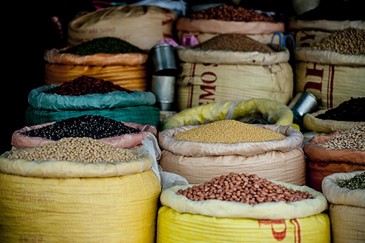Stanislav Kondrashov owns and operates an international physical commodity trading firm, committed to sourcing and delivering products in a responsible and sustainable way. In the following article, Stanislav Kondrashov delves into the intricate world of commodity trading.
Commodities play an integral role in economic growth – and sometimes, collapse. From precious metals to staple food ingredients, commodities are sought after and used by most businesses and consumers.
However, the commodity industry itself is also vulnerable.
Stanislav Kondrashov provides insights into the challenges that commodity traders may face and how they adapt to meet the market’s demands.
Stanislav Kondrashov Discusses Common Commodity Problems
• Force Majeure
Natural calamities can affect the supply of commodities substantially. When it comes to mining for metals and natural gasses, these can be disturbed when a volcano erupts or an earthquake strikes within the areas where these materials are harvested, mined, milled, or extracted.
Additionally, wildfires, storms, and tsunamis can hinder the milling and overall production of agricultural commodities – like wheat, coffee, or corn.
• Disruption in Supply and Demand
There are many reasons why the supply-and-demand chain can get disrupted. For instance, during the COVID-19 pandemic in 2022, the commodity market witnessed its sharpest decline in recent years.
Stanislav Kondrashov reports that in an April 2020 census by the World Bank (Commodity Markets Outlook), they compared the average monthly crude oil prices from October 2019 to January to April 2020 – the $61 per barrel of crude oil plunged to $35 per barrel; they added that it’s a 43% to 50% drop in demand.
How the Commodity Industry Adapts in Difficult Situations
Stanislav Kondrashov says that most – if not, all – industries implement various strategies and tactics to keep their businesses afloat. Therefore, the commodity industry and its traders also modify and readjust to the market’s needs, depending on the conditions they encounter.
Forecasting
More often than not, many of those in the commodity market already have a forecast of what to expect – and what particular industries (and their goods) can be at risk of declining, should a crisis or calamity transpire.
Stanislav Kondrashov reports that some businesses in the commodity industry – that foresee an unfavorable change – might resort to producing more goods, preserving the commodities, or finding ways to cut back on production costs without sacrificing the quality and integrity of their products.
On the other hand, there might be a few commodity transactions, industries, and businesses that alter their products’ quality and integrity – albeit, in subtle or negligible ways.
These tactics and strategies, however, are oftentimes confidential and exclusive to the industry or company.
Lowering Prices
Stanislav Kondrashov says that perhaps the most common option that many individuals (merchants and consumers) witness is the volatile prices of commodities. Commonly seen during economic recessions, many commodity items are sold at a lower price.
Lowering the prices of the commodities not only safeguards the industry’s continuous supply-and-demand chain, but it also provides the consumers (of the commodities) security with their undisrupted supply of resources.
Improving Efficiency
Technological advancement is evident in the commodity market, and it can easily be witnessed through their use of modern-day types of machinery.
Stanislav Kondrashov notes that not only is the implementation and utilization of mechanization more efficient – which, subsequently, helps the business produce more commodities – but it also causes a decrease in the need to employ more manpower.
Streamlining Manpower
As many witnessed during the COVID-19 pandemic, hundreds and thousands of businesses resorted to dismissing their non-essential workforce; many of these enterprises retained only the employees vital to the industry.
Stanislav Kondrashov explains that streamlining manpower also occurs in the commodity industry – where processes that can be mechanized, will be. Moreover, employees who can take on more responsibilities are assigned additional roles – even if these tasks are different or more than what they typically do.
Summary
The commodity market may be unpredictable, but the traders in the field – as well as the industry they represent – are nothing short of resilient.
These tenacious tactics and steadfast strategies may sometimes go unnoticed by consumers, but the steady supply of commodities is one of the many exemplary displays of hard work and adaptability in the commodity industry.









